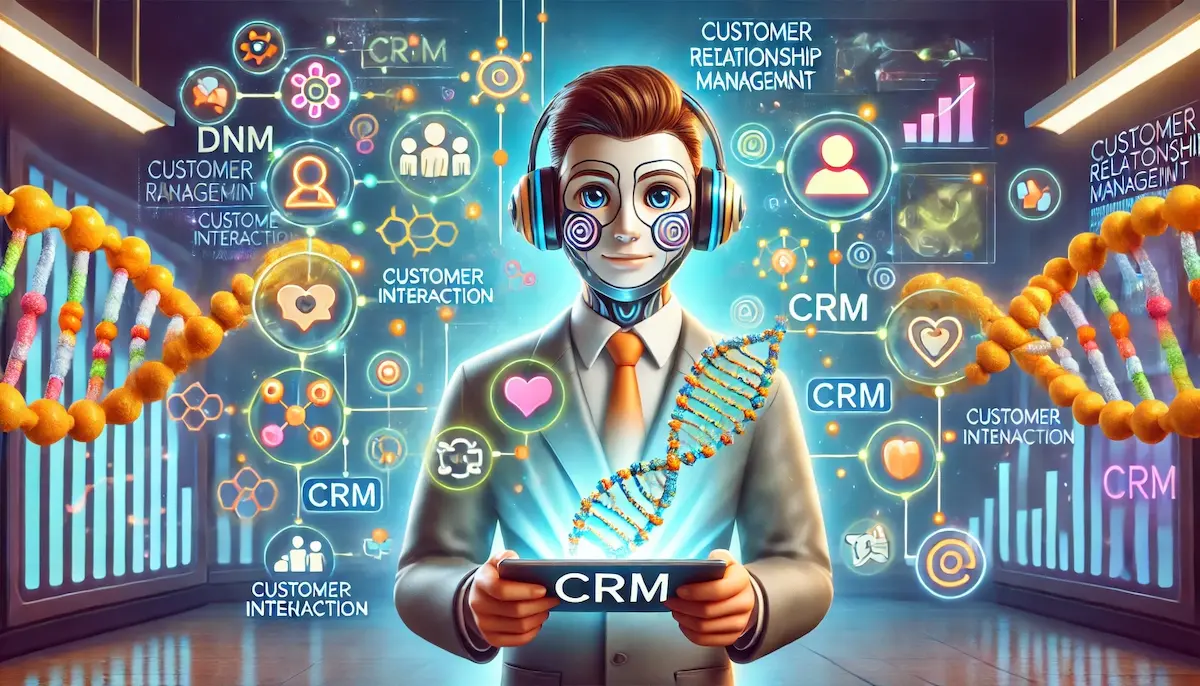Biotech Customer Relationship Management (CRM) is an essential strategy for building and maintaining strong relationships with customers in the biotechnology industry. Given the complexity and high stakes involved in biotech products and services, effective CRM is crucial for ensuring customer satisfaction, fostering loyalty, and driving business growth.
Understanding Biotech CRM
Biotech CRM involves the use of strategies, tools, and technologies to manage interactions with customers, including healthcare professionals, researchers, hospitals, pharmaceutical companies, and patients. The goal is to create a seamless experience across all touchpoints, from initial contact through ongoing support and beyond. In the biotech industry, CRM systems help track customer interactions, manage sales pipelines, ensure compliance, and provide insights into customer needs and behaviors.
The Importance of Biotech CRM
- Building Strong Relationships: Effective CRM helps biotech companies build long-lasting relationships with their customers, which is critical in a field where trust and reliability are paramount.
- Enhancing Customer Satisfaction: By understanding and anticipating customer needs, biotech CRM enables companies to provide personalized support and solutions, leading to higher satisfaction levels.
- Driving Sales and Growth: CRM systems help biotech sales teams manage leads, track opportunities, and close deals more efficiently, contributing to revenue growth.
- Ensuring Regulatory Compliance: CRM systems can be configured to ensure that all customer interactions comply with industry regulations, such as those set by the FDA, EMA, and other regulatory bodies.
- Providing Data-Driven Insights: CRM systems collect and analyze customer data, providing valuable insights that can inform product development, marketing strategies, and customer support efforts.
Key Components of Biotech CRM
- Customer Data Management: CRM systems centralize customer information, including contact details, purchase history, communication logs, and preferences. This data provides a comprehensive view of each customer, enabling personalized interactions.
- Sales Pipeline Management: CRM tools help manage the sales process by tracking leads, monitoring the progress of opportunities, and managing sales activities. This ensures that sales teams are focused on the right opportunities and can close deals more effectively.
- Customer Support Integration: Integrating CRM with customer support systems allows for seamless communication between sales and support teams, ensuring that customer issues are addressed promptly and effectively.
- Regulatory Compliance Tracking: CRM systems can be configured to track compliance-related activities, such as documenting interactions with healthcare professionals and managing consent for marketing communications.
- Marketing Automation: CRM systems often include marketing automation features that enable targeted email campaigns, segmentation, and lead nurturing based on customer behavior and preferences.
- Reporting and Analytics: CRM systems provide reporting and analytics tools that allow biotech companies to track key performance indicators (KPIs), such as customer satisfaction, sales performance, and campaign effectiveness.
- Collaboration Tools: CRM platforms often include collaboration features that enable teams across sales, marketing, and support to work together more effectively, sharing insights and coordinating activities.
Challenges in Biotech CRM
- Data Integration: Integrating data from multiple sources, such as sales, marketing, customer support, and regulatory systems, can be challenging, but it’s essential for creating a comprehensive view of the customer.
- Complex Sales Cycles: The biotech industry often involves long and complex sales cycles, requiring CRM systems to be highly flexible and capable of managing multiple stages of the sales process.
- Regulatory Compliance: Ensuring that CRM activities comply with industry regulations is critical, particularly when dealing with sensitive customer information and interactions with healthcare professionals.
- Customization Needs: Biotech companies often require highly customized CRM solutions that can handle the specific needs of their industry, such as managing clinical trial data or tracking interactions with regulatory bodies.
- User Adoption: Ensuring that all team members, from sales to support, effectively use the CRM system is crucial for its success. This requires ongoing training and a focus on user-friendly interfaces.
Best Practices for Effective Biotech CRM
- Invest in Customizable CRM Solutions: Choose a CRM platform that can be tailored to meet the specific needs of the biotech industry, including features for managing complex sales cycles, regulatory compliance, and customer support integration.
- Focus on Data Quality: Ensure that customer data is accurate, up-to-date, and integrated across all systems. Regularly clean and update your CRM database to maintain data integrity.
- Provide Comprehensive Training: Offer ongoing training to ensure that all team members are comfortable using the CRM system and understand how it supports their roles. This will help drive user adoption and maximize the system’s effectiveness.
- Leverage Automation: Use CRM automation features to streamline routine tasks, such as email marketing, lead nurturing, and follow-up reminders. This allows your team to focus on more strategic activities.
- Ensure Compliance: Work closely with legal and regulatory teams to ensure that all CRM activities comply with relevant industry regulations, such as those related to data privacy and interactions with healthcare professionals.
- Personalize Customer Interactions: Use the data and insights provided by your CRM system to personalize customer interactions, from marketing messages to support responses. This enhances the customer experience and builds stronger relationships.
- Monitor and Measure Performance: Regularly review CRM analytics and reports to track key performance metrics, such as customer satisfaction, sales growth, and campaign effectiveness. Use this data to make informed decisions and continuously improve your CRM strategy.
- Foster Cross-Departmental Collaboration: Encourage collaboration between sales, marketing, and customer support teams by ensuring that they all have access to the CRM system and can share information easily. This helps create a unified approach to customer relationship management.
- Adapt to Changing Needs: The biotech industry is constantly evolving, so it’s important to regularly assess your CRM system and strategy to ensure they remain aligned with your business goals and customer needs.
In conclusion, biotech CRM is a powerful tool for managing customer relationships, driving sales, and ensuring regulatory compliance in a highly specialized industry. By following best practices and addressing the unique challenges of the biotech sector, companies can build strong, lasting relationships with their customers and support their long-term growth and success.
Blockfine thanks you for reading and hopes you found this article helpful.
